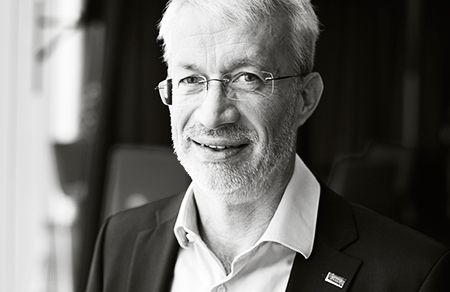Basic government grants must form the long-term foundation
The most important quality reform in Swedish research would be increased basic government grants.

SULF has recently been given the opportunity to submit comments on the report Research Quality Evaluation Sweden – FOKUS. This deals with a new model for resource allocation to universities and university colleges, including an expert review of research quality and relevance. We have responded to the Government that we are, on the grounds of principle, firmly opposed to the proposal to implement the FOKUS model as well as to continued redistribution of basic grant funding based on different types of university evaluations.
SULF considers that a university’s basic grants must constitute the long-term basis for its operations and not be exposed to competition. Instead of creating confidence, the proposed evaluation system indicates distrust of scientists and of universities. Politicians appear to fear that researchers would not voluntarily engage in the most important and successful research unless these research projects were reviewed in advance.
SULF, in its consultation response, has taken the opportunity to point out that the Prime Minister in his Statement of Government Policy indicated a move away from the New Public Management with its associated evaluation hysteria in his statement, “Let the professionals be professional.” An evaluation system such as FOKUS is completely at odds with the increased professionalisation of researchers and university teachers.
Thirty years ago the ratio of direct to external research grants was about 60/40. Today the situation is almost the reverse. Currently, only 45% of government R & D budget goes to universities in the form of direct grants, of which 20% is allocated according to quality indicators.
Fragmented, short-term research financing and the high proportion of competitive funding have had consequences. Today’s higher education landscape is littered with research and teaching staff in precarious employment positions, hunting for money for their own salaries with no clear career paths for young scientists. One third of the senior teaching and research staff, a higher proportion of women than men, are employed on fixed term contracts.
In such a climate the academic freedom of individual researchers suffers because academic freedom requires that employees dare to say what they think without jeopardising their jobs.
Working environment suffers as employees with precarious job situations have more problems with poor work environment, stress and lack of confidence in management.
Mobility suffers because people are forced to stay near to the people they already know in order to get teaching hours or be included in research applications. Uncertain employment conditions at the country’s universities bring the risk that the most skilled people will leave to move to better jobs outside academia.
If all teachers were given time for research or scientific/artistic activities within the scope of their employment, this would ensure not only a stronger research links with education but also a stronger education relationship in research.
We know that external funding is not distributed equally. Research as an integral part of jobs would lead to more women gaining the opportunity to qualify to professor level competence.
The most important quality reform for Swedish research would be increased basic government grants, proper employment conditions and open advertisement of positions, which in turn promotes gender equality and higher levels of quality.
Mats Ericson, SULF Chair
Leader in Universitetsläraren No. 1/ 2016